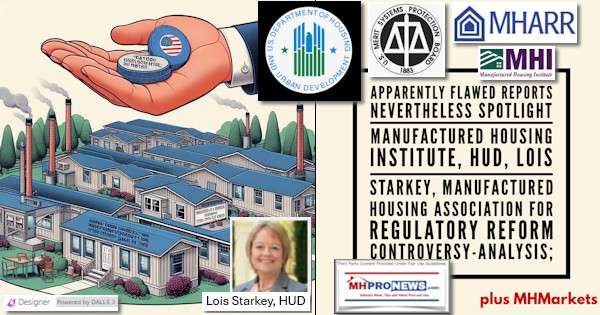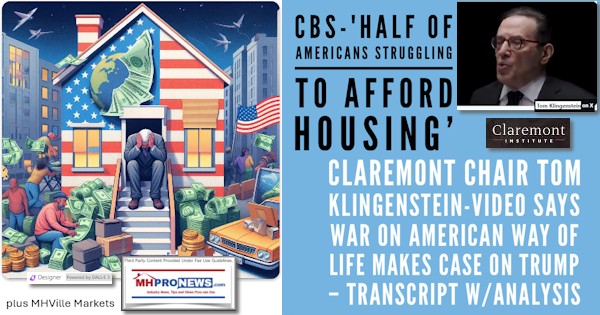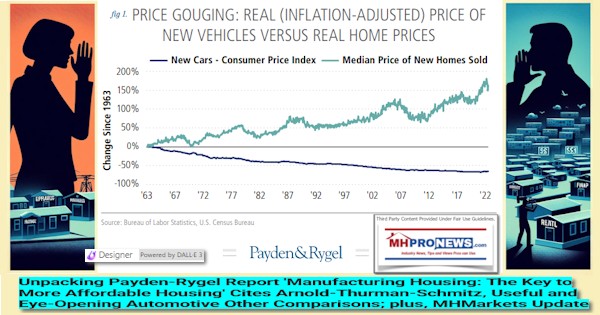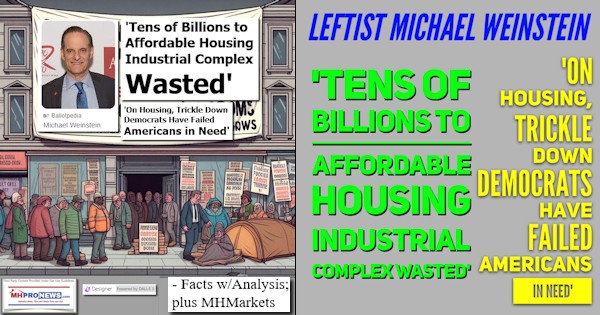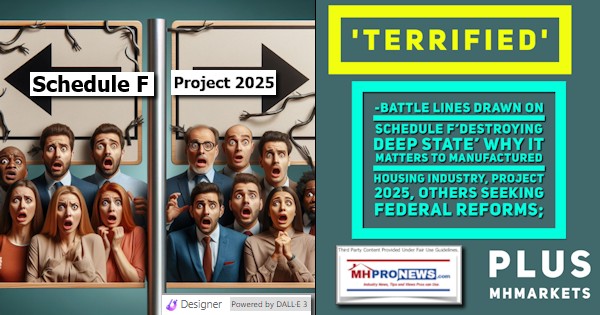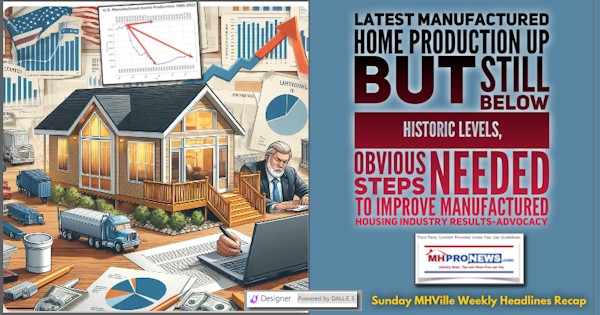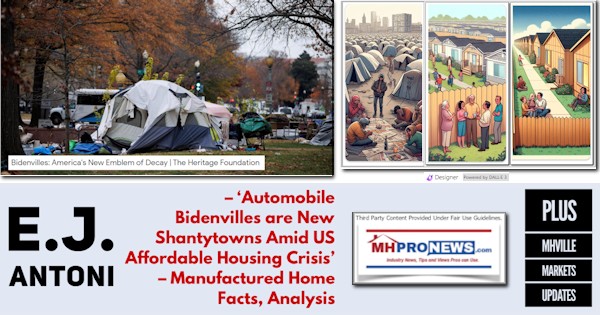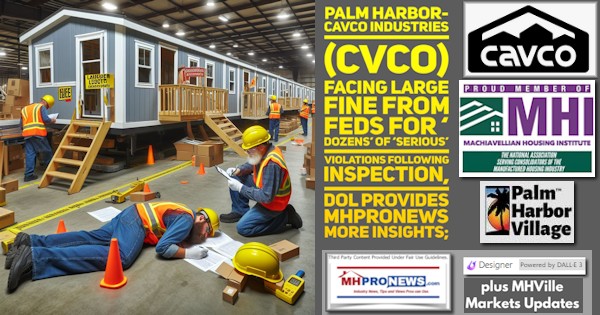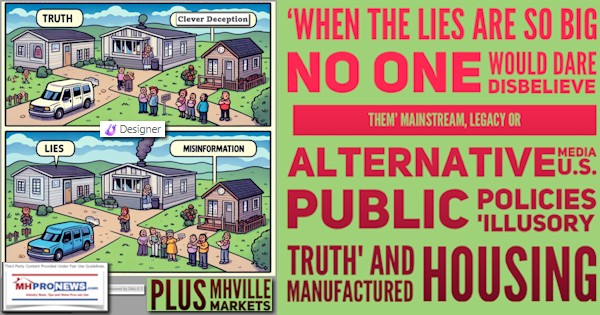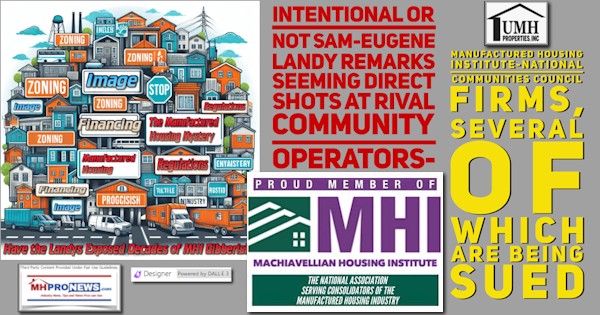
The DOE based their recommendations on the Manufactured Housing Working Group:
The MH Working Group’s recommendations were based on the 2015 edition of the International Energy Conservation Code (IECC), the impact of the IECC on the purchase price of manufactured housing, total lifecycle construction and operating costs, factory design and construction techniques unique to manufactured housing, and the current construction and safety standards set forth by U.S. Department of Housing and Urban Development.”
MHI further says that these regulatory efforts should be in keeping with HUD’s role as the prime regulator of manufactured housing, and “to ensure that these regulations are consistent with the HUD Code. MHI plans to submit written comments during the written comment period. The Manufactured Housing Consensus Committee (MHCC) will also be evaluating the impact of the rule on MH.
Meanwhile, the Manufactured Housing Association for Regulatory Reform (MHARR) says the proposed rule will add thousands to the cost of MH, depriving many in the moderate to lower-income housing market away of potential homeownership, as well as harming smaller players in the MH industry.
The rule began in 2011 with a selective leak of the proposed rule to the Manufactured Housing Institute (MHI), the industry’s largest trade organization, and others of interest, until the Office of Management and Budget demanded they re-start the rulemaking process.
The fresh start became an alleged collusion between MHI, the Department of Energy and other special interests to ram a proposed rule through an obscure committee while the DOE “awarded multiple lucrative contracts to MHI-connected ‘research’ entities to, among other, things, tout DOE manufactured housing energy regulation and break-down industry opposition to any ultimate DOE rule.”
MHARR says the DOE then provided a copy of the proposed rule in advance of the official publication date to MHI in an attempt to possibly soften opposition to the rule.
MHARR says the rule offers a solution to a non-existent problem: According to the U. S. Census Bureau, manufactured homes are already energy efficient, comparable, and sometimes lower in energy use, than site built homes.
According to DOE Manufactured Housing Working Group data, the rule would add an average of at least $2,226 to the price of a single-section MH, while adding $3,109 retail to the price of a multi-section home.
MHARR says, however, the cost will likely be closer to $4,000 for a single-section and $6,000 for a multi-section MH, although these do not include testing, enforcement or any compliance costs, and basically amount to a regressive tax that hurts those at the lower end of the economic spectrum, the very demographic affordable, manufactured homes are designed to help.
The DOE would basically impose energy measures on manufactured homes that are already available as options homebuyers can choose from, or not, measures that are not even mandated for million dollar site-built homes in most states.
MHARR says in addition to consumers, the greatest negative jolt will be on smaller HUD Code businesses who do not have the cushion to absorb the up front impact of the proposal.
MHARR says: “Thus, the industry’s largest corporate conglomerates – and their national representative MHI – have not only ‘gone along’ with DOE, but appear to have worked publicly and behind the scenes to advance government action that will disproportionately harm smaller competitors. This, together with a level of industry domination that either does – or will — exceed half the national manufactured housing market, raises antitrust questions that should and will be explored further.”
The DOE did not offer to allow the Manufactured Housing Consensus Committee (MHCC) the opportunity to consider the proposed rule or the ramifications of its cost.
MHARR has subsequently filed Freedom of Information Act (FOIA) requests because of the closed door collaboration of MHI, Dow and other parties; and seeks documents that show DOE payments to MHI-connected entities and individuals.
MHARR will submit comments to the DOE before Aug. 16, when discussion is closed; and if there are not substantive changes to the rule, MHARR says it may seek legal action.
For the DOE proposal in the Federal Register, please click here. For the link to MHARR’s full statement to MHProNews, please click here. The full download of the NAHB’s priced out study – which reflects the numbers of prospective home buyers lost per each $1000 in price increase – is found in the article linked here. ##
(Image credit: U. S. Department of Energy)








